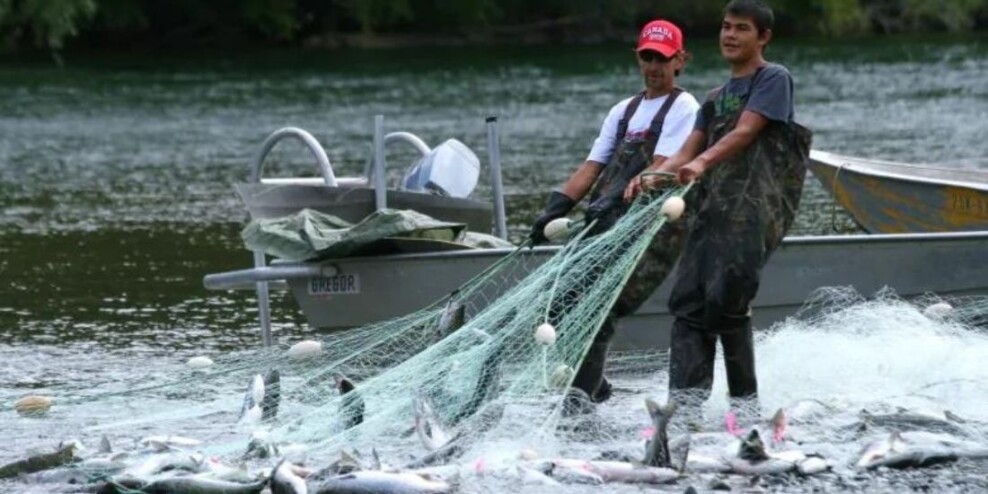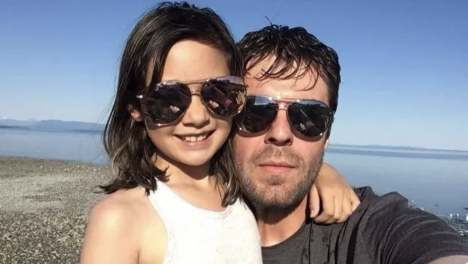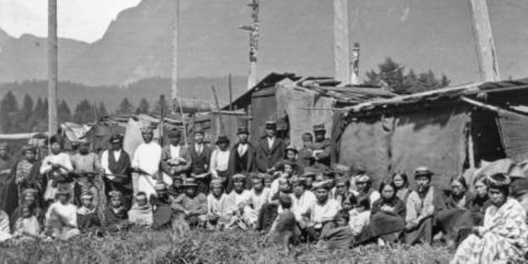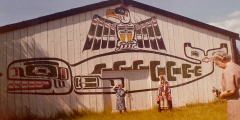On August 18, four Nuu-chah-nulth fishing boats tied up at Tofino’s 4th Street docks, their holds filled with freshly caught Chinook salmon. But, according to the federal government, it was an illegal fishery.
However, the Nuu-chah-nulth say they’re exercising their aboriginal right to harvest and sell fish.
They have the Court of Appeal on their side. Three months ago, the Nuu-chah-nulth celebrated a historic win after a decade-long battle for fishing rights.
In April, the Court of Appeal upheld the Nuu-chah-nulth earlier court victory that said Canada’s regulation and management of commercial fisheries infringe on the First Nations’ rights.
After years of discussion and many court victories, the hereditary leadership of five Nuu-chah-nulth First Nations have had enough. The Nuu-chah-nulth say they’re tired of waiting for the federal government to follow through on developing fishery policies in line with their aboriginal rights.
Their community can’t miss out on another fishing season while others scoop of the fish, so they’ve decided to exercise their right to harvest and sell fish – with or without Fisheries and Oceans Canada’s (DFO) permission.
That’s exactly what they did last week, knowing that they could face stiff fines.
“It’s yet to be determined. We’ll find out pretty quick,” Ahousaht Hereditary Chief Richard George told CHEK News as the fishers unloaded at the Tofino dock, wondering if DFO would arrive.
In a joint statement released August. 4, the five Nuu-chah-nulth First Nations – Ahousaht, Hesquiaht, Ehattesaht/Chinehkint, Mowachaht/Muchalaht, and Tla-o-qui-aht – said they “will no longer stand by, as our fishers remain tied to our docks, while non-Indigenous users benefit from the resources of our traditional territories,”
“They cannot wait any longer for Canada to work with them on fishing plans and will be fishing under the authority of their Ha’wiih and asserting their rights as they have done since time immemorial,” said Nuu-Chah-Nulth Tribal Council President Dr. Judith Sayers. “It is what must happen since Canada continually leaves them out of the commercial fishery to the detriment of our fishers while favouring those that only have a privilege to fish.”
The five Nations say they have tried to work with the DFO for more than a decade.
“From the beginning, we’ve been willing to share – that was our approach right from day one,” said Ahousaht First Nation lead negotiator Wickaninnish, Cliff Atleo. “Fishing is at the center of Nuu-chah-nulth’s pre-contact activities, our way of life, and our cultural practices. We are a fishing people. We’re creating our own fisheries management plans within the framework of conservation, and we will enact them within our traditional territories.”
The five Nations say their right to fish and sell fish is “second only to conservation and has priority over the recreational and commercial sectors.”
Salmon stocks are in decline, and the Nuu-chah-nulth say they are not out on the water to be greedy.
“Our fishermen have been fishing under these chiefs’ authority for thousands of years, fishing and selling,” said Tla-o-qui-aht Lands & Resource Manager, Saya Masso.
DFO told CHEK News that the “Fisheries Act and Regulations provide the tools to ensure conservation and protection of fisheries resources. They remain valid and in force.”
However, so far, no DFO enforcement officers have shown up to challenge the fishery. In the meantime, the Nuu-chah-nulth say they will be there in numbers to support their fishers every time they arrive at the dock.
“It’s very special to me, and my family because fishing is like the greatest thing I’ve ever done,” 7-year-old Marion Manson, a member of Tla-o-qui-aht whose family lives in Tofino, said in the CHEK News report. “I’m a fisher girl.”










